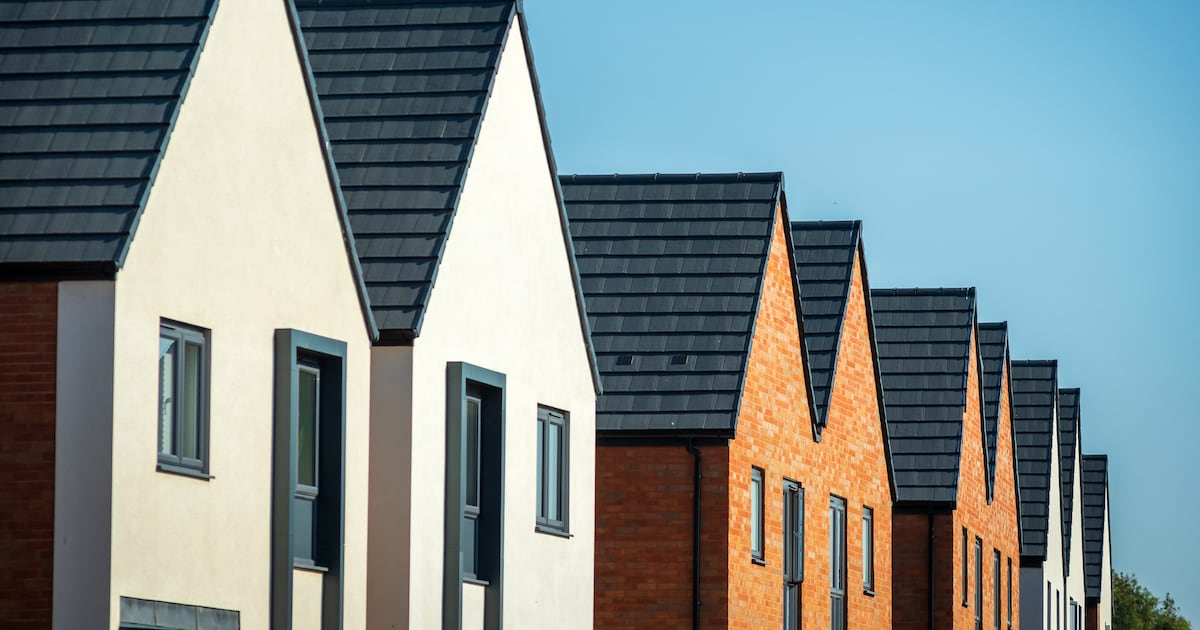Business
Irish Builders Highlight Housing Crisis Amid Planning Delays

The challenges facing Ireland’s housing sector were starkly outlined during a recent meeting of the Oireachtas housing committee. Key industry figures expressed serious concerns about the government’s capacity to meet its housing targets due to a combination of planning delays, infrastructure inadequacies, and a lack of international investment.
In his address, Stephen Garvey, chief executive of Glenveagh Properties, spoke of a “major but rarely-discussed contradiction” within the housing market. He noted that while Ireland urgently needs thousands of homes, the construction of these properties is hindered by increasingly stringent regulations and a public attitude of “not in my back yard.”
Garvey pointed out that the ambitious goals set by the government are fundamentally incompatible with the current constraints. He stated, “These aims are understandable and laudable. But they are fundamentally incompatible with each other and cannot all be delivered at the same time.” The ongoing insistence on perfection in planning, he argued, is causing significant delays that ultimately inflate housing prices.
During the committee meeting, Garvey highlighted the financial impact of these delays, revealing that the planning process for a development in Co Clare had already added approximately €30,000 to the final price of homes. This situation has led to widespread criticism of local authorities for their failure to zone sufficient land for residential construction. Executives from various companies indicated that the shortage of zoned land is nearing “crisis point,” raising concerns about the commitment of local governments to facilitate more housing projects.
Madeleina Loughrey-Grant, chief strategy and sustainability officer at Cairn Homes, emphasized the necessity of public investment in infrastructure to support housing development. Drawing a comparison to London’s Elizabeth rail line, which has enabled the construction of approximately 55,000 homes near its stations, she pointed to significant infrastructure deficiencies in Ireland. For instance, a housing estate in Portlaoise is unable to connect to the electricity grid due to capacity issues at the local substation.
The committee learned that achieving the government’s housing target of constructing an average of 50,000 new homes annually until 2030 will require a significant increase in apartment developments. However, without international funding, bringing these projects to fruition will be exceedingly challenging. Michael Stanley, chief executive at Cairn, noted that substantial housing developments typically demand initial investments ranging from €10 million to €15 million, while major apartment projects could require investments between €80 million and €100 million.
The withdrawal of large overseas investment funds from the Irish market in recent years has further complicated the situation. Michael Kelleher, president of the Irish Home Builders Association, projected that the number of homes completed this year would be in the “low thirties” of thousands, far below the targets set by the government. He affirmed that companies possess the potential to scale up their operations significantly if the barriers to construction are addressed.
Further discussions during the hearing revealed that, contrary to some perceptions, labor shortages are not a primary constraint for the industry. Both Garvey and Stanley criticized the country’s high minimum standards for apartments, arguing that the current regulations have effectively limited options for builders. Garvey remarked that recent regulatory changes have removed choice, stating, “If it’s not going to be a Mercedes Benz then it’s not going to be built.”
He also contested the notion that the industry is highly profitable, revealing that Glenveagh has achieved a turnover of €3.5 billion since 2017, with profits of only €217 million, equating to a return of just 6 percent. Garvey pointed out that investing equity in banks would yield similar returns, which he indicated is a deterrent for new investors entering the market.
The discussion at the Oireachtas housing committee underscored the urgent need for a comprehensive review of the planning process and infrastructure investment in Ireland. The outcomes of these discussions will be pivotal in determining whether the government can successfully address the ongoing housing crisis and meet its ambitious targets.
-

 Top Stories3 months ago
Top Stories3 months agoTributes Surge for 9-Year-Old Leon Briody After Cancer Battle
-

 Entertainment4 months ago
Entertainment4 months agoAimee Osbourne Joins Family for Emotional Tribute to Ozzy
-

 Politics4 months ago
Politics4 months agoDanny Healy-Rae Considers Complaint After Altercation with Garda
-

 Top Stories4 months ago
Top Stories4 months agoIreland Enjoys Summer Heat as Hurricane Erin Approaches Atlantic
-

 World5 months ago
World5 months agoHawaii Commemorates 80 Years Since Hiroshima Bombing with Ceremony
-

 Top Stories3 months ago
Top Stories3 months agoNewcastle West Woman Patricia Foley Found Safe After Urgent Search
-

 Top Stories5 months ago
Top Stories5 months agoFianna Fáil TDs Urgently Consider Maire Geoghegan-Quinn for Presidency
-

 World5 months ago
World5 months agoCouple Convicted of Murdering Two-Year-Old Grandson in Wales
-

 World5 months ago
World5 months agoGaza Aid Distribution Tragedy: 20 Killed Amid Ongoing Violence
-

 World5 months ago
World5 months agoAristocrat Constance Marten and Partner Convicted of Infant Murder
-

 Top Stories4 months ago
Top Stories4 months agoClimbing Errigal: A Must-Do Summer Adventure in Donegal
-

 Top Stories4 months ago
Top Stories4 months agoHike Donegal’s Errigal Mountain NOW for Unforgettable Summer Views









